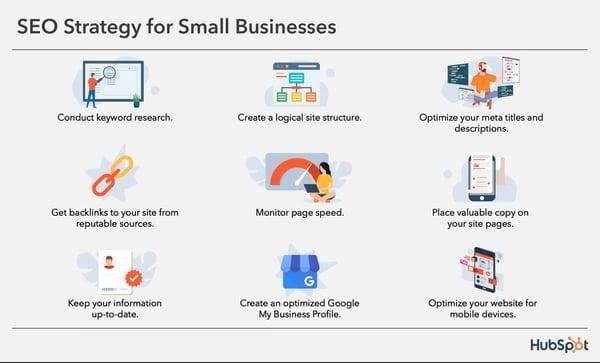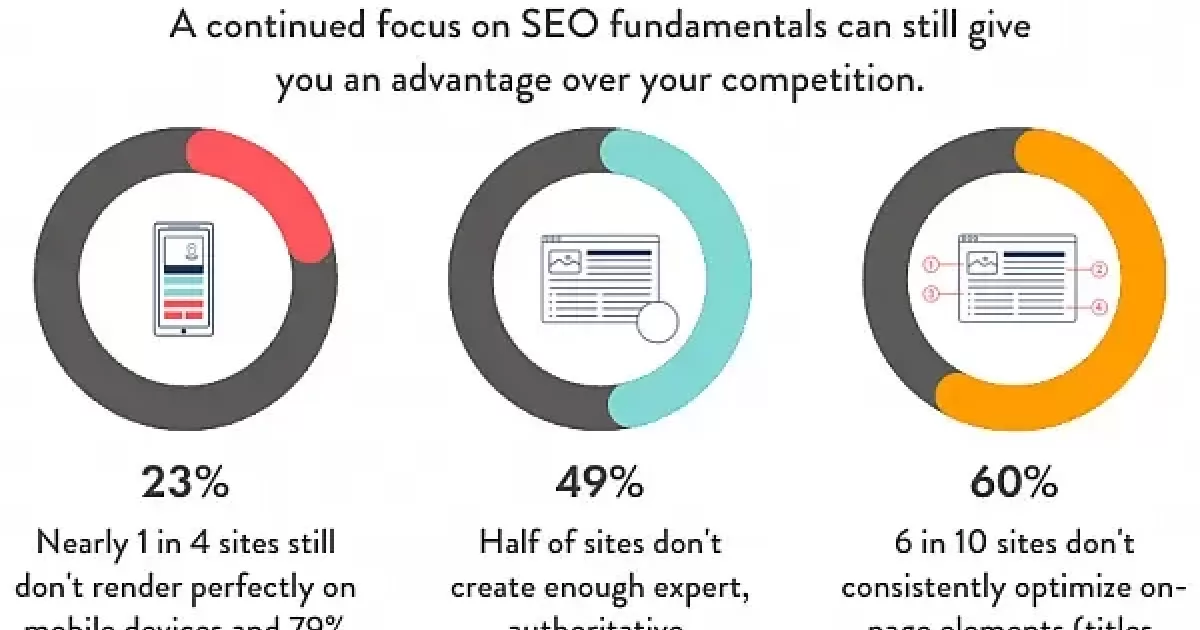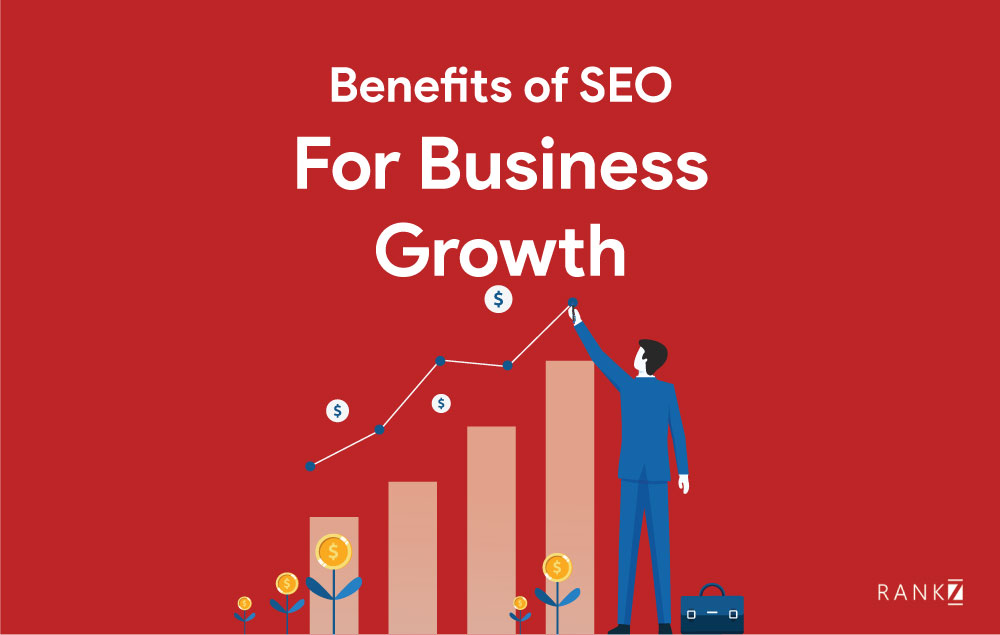Uncover the secret to unlocking explosive growth for your small business using the power of SEO – don’t miss out!

Image courtesy of via DALL-E 3
Table of Contents
Welcome to a world where small businesses can thrive and grow with the help of a powerful tool called SEO. But wait, what exactly is SEO? Well, SEO stands for Search Engine Optimization. This means optimizing your website so that it shows up higher in search results when people look for things online. So, why is this important for small businesses? Let’s dive in and find out how SEO can make a big difference in the growth of your online presence and business.
What is SEO?
SEO is like a magic spell that helps websites climb to the top of search results. When someone searches for something on Google or other search engines, they are more likely to click on websites that appear at the top. SEO is what helps websites get to the top by making sure their content is relevant, informative, and easy to find. It’s like planting a seed and watching it grow into a beautiful flower that everyone wants to see!
Why Does SEO Matter?
Imagine you have a lemonade stand on a busy street. If your stand is hidden in a corner where no one can see it, how many customers do you think you will get? Not many, right? That’s where SEO comes in for your website. It helps people find your business online, just like putting a sign on your lemonade stand that can be seen from far away. The higher you rank in search results, the more customers you can attract, and the faster your business can grow.
Understanding Search Engines
How Do Search Engines Work?
Search engines like Google, Bing, and Yahoo are like super-smart detectives that help us find information on the internet. They work by sending out small programs called “web crawlers” to explore websites and gather details about what is on each page. These crawlers collect information like keywords, links, and images to build a huge index of all the content they find.
When you type something into a search engine, such as “best pizza near me,” the search engine quickly looks through its index to find all the websites that mention those keywords. It then ranks these websites based on how closely they match your search terms and how popular and trustworthy they are. The search engine wants to make sure it shows you the most helpful and reliable results first.
Why Ranking Matters
Now, you might be wondering why it’s essential to be on the first page of search results. Well, think about when you search for something online. Do you usually click on the websites listed on the first page, or do you keep scrolling to the second or third pages? Most people tend to click on the first few results, so if your website appears on the second or third page, fewer people will see it.
That’s why businesses aim to rank higher on search engines. By appearing at the top of the search results, they increase their chances of getting more visitors to their website. And the more visitors they get, the more opportunities they have to turn those visitors into customers. It’s like having a store on the busiest street in town versus a quiet back alley – more people are likely to come in and shop at the store on the busy street.
Keywords and Their Importance
Keywords are like secret codes that help search engines like Google, Bing, and Yahoo understand what your website is all about. These words or phrases are what people type into search engines when looking for something online. By using the right keywords on your website, you can attract more visitors and potential customers.
What Are Keywords?
Keywords are the words or phrases that best describe the content on your website. They are what people type into search engines when they are looking for information, products, or services. For example, if you have a bakery website and want people to find you when they search for “best cupcakes in town,” you would use that phrase as one of your keywords.
How to Choose Keywords
Choosing the right keywords for your small business is crucial for attracting the right audience. To pick the best keywords, think about what your potential customers might search for online. Consider using specific terms related to your products or services. You can also use tools like Google Keyword Planner to find popular keywords in your industry.
On-Page SEO Factors
One of the most critical aspects of on-page SEO is ensuring that your website has high-quality content. Good content not only attracts visitors but also keeps them engaged and coming back for more. When creating content for your website, make sure it is informative, well-written, and relevant to your target audience. By providing valuable articles or posts, you can improve your website’s ranking and increase your chances of being found by potential customers.

Image courtesy of blog.hubspot.com via Google Images
Meta Tags and Descriptions
Meta tags, titles, and descriptions are essential elements of on-page SEO that small businesses can control on their websites. These tags provide information to search engines about the content of your web pages, helping them understand what your site is about. By optimizing your meta tags and descriptions with relevant keywords, you can improve your site’s visibility in search results and attract more organic traffic. Make sure to craft compelling and descriptive meta tags that accurately represent your content to entice users to click through to your website.
Off-Page SEO Factors
When it comes to optimizing your website for search engines, there are two main categories to consider: on-page SEO factors that you have direct control over, and off-page SEO factors that influence your site’s rank indirectly. In this section, we will delve into the world of off-page SEO and explore how elements like backlinks and social media signals can impact your website’s visibility on search engines.
Backlinks
Backlinks are links from external websites that point to pages on your website. Think of them as “upvotes” from other sites indicating that your content is valuable and trustworthy. Search engines like Google view backlinks as a vote of confidence in your site’s authority, which can positively impact your search rankings.
In the world of SEO, quality trumps quantity when it comes to backlinks. It’s better to have a few high-quality links from reputable websites than a plethora of low-quality links. Building backlinks is like building relationships in the digital realm – it takes time, effort, and strategic outreach to secure valuable links from relevant sources.
Social Media Signals
Social media plays a crucial role in off-page SEO by amplifying your content’s reach and driving traffic to your website. When your content is shared on platforms like Facebook, Twitter, or Instagram, it sends signals to search engines that people find your content engaging and relevant. These social signals can indirectly impact your search rankings.
Moreover, social media can help you build a community around your brand, engage with your audience, and generate buzz about your products or services. By creating shareable content and fostering relationships with your followers, you can boost your off-page SEO efforts and enhance your online presence.
Local SEO
Local SEO is a powerful tool for small businesses looking to attract customers in their area. By optimizing their online presence for local search, businesses can connect with nearby customers who are actively looking for their products or services. Let’s explore some key strategies that can help local businesses improve their visibility in search engine results.

Image courtesy of www.workshopdigital.com via Google Images
Google My Business
One essential aspect of local SEO is setting up and optimizing a Google My Business profile. This free tool allows businesses to manage their online presence across Google, including Search and Maps. By providing accurate and up-to-date information about their business, such as address, phone number, and business hours, companies can increase their chances of appearing in the coveted map pack and local search results.
Local Keywords
Using local keywords is another crucial component of local SEO. By incorporating phrases that include the name of the city, neighborhood, or region where the business operates, companies can target customers who are searching for products or services in their area. For example, a bakery in Chicago might use keywords like “best cupcakes in Chicago” to attract local customers looking for sweet treats in the Windy City.
Customer Reviews
Customer reviews play a significant role in local SEO. Positive reviews not only build trust with potential customers but also signal to search engines that a business is reputable and worth recommending. Encouraging satisfied customers to leave reviews on platforms like Google My Business, Yelp, or Facebook can help boost a business’s visibility in local search results and attract more customers in the long run.
Measuring SEO Success
In order to understand the effectiveness of your small business’s SEO efforts, it’s essential to measure various key metrics and utilize analytics tools. By tracking these metrics, you can gain insights into how well your website is performing in search engine results and how successful your SEO strategies are in attracting visitors and converting them into customers.
Important SEO Metrics
There are several key metrics that small businesses should pay attention to when evaluating their SEO performance. These include:
– Traffic: Monitoring the amount of traffic coming to your website can indicate how well your SEO efforts are driving visitors to your site.
– Rankings: Keeping track of where your website appears in search engine results for various keywords can show if your SEO strategies are helping you climb the rankings.
– Conversions: Tracking conversions, such as sign-ups or purchases, can reveal if your SEO efforts are effectively turning visitors into customers.
Using Analytics Tools
Analytics tools like Google Analytics can provide invaluable insights into how your website is performing and the impact of your SEO efforts. These tools allow you to:
– Monitor Traffic Sources: Understand where your website traffic is coming from, whether it’s through search engines, social media, or other referral sources.
– Identify Popular Pages: Determine which pages on your site are attracting the most visitors and adjust your SEO strategies accordingly.
– Track User Behavior: Analyze how users interact with your website, such as which pages they visit most often or how long they spend on each page.
By regularly monitoring these metrics and utilizing analytics tools, small businesses can gain a clearer picture of their SEO performance and make informed decisions to further optimize their website for better search engine visibility and customer engagement.
Tips for Beginners
SEO might sound complicated, but don’t worry! Here are some simple tips to help you get started with improving your small business’s online presence:

Image courtesy of rankz.co via Google Images
Start with Basics
When you’re just beginning to explore SEO, it’s important to start with the basics. Learn about keywords, meta tags, and how search engines work. By understanding the fundamentals, you’ll be better equipped to implement effective SEO strategies for your website.
Continuous Learning
SEO is constantly evolving, so it’s essential to stay up-to-date with the latest trends and best practices. Make it a habit to read SEO blogs, attend webinars, and learn from industry experts. By continuously learning and adapting your SEO strategies, you’ll be able to keep up with the ever-changing digital landscape.
Conclusion
In conclusion, SEO plays a pivotal role in the growth and success of small businesses in the digital landscape. By optimizing their online presence, businesses can attract more customers, increase visibility, and ultimately drive growth. Let’s recap the key points discussed in this article.
Recap of SEO Benefits
SEO, or search engine optimization, helps small businesses rank higher on search engine results pages, making it easier for potential customers to find them. By utilizing keywords effectively, businesses can target their ideal audience and increase website traffic. On-page and off-page SEO strategies, along with local SEO tactics, all contribute to boosting a business’s online visibility and attracting local customers. Moreover, measuring SEO success through analytics tools allows businesses to track their performance and make data-driven decisions to improve their strategies.
Final Thoughts
As a small business owner, embracing SEO can be a game-changer for your growth trajectory. Starting with the basics and continuously learning about SEO trends and best practices will empower you to stay ahead in the competitive digital landscape. By investing time and effort in optimizing your online presence, you can expand your reach, connect with more customers, and drive sustainable growth for your business. Remember, SEO is not a one-time task but an ongoing process that requires dedication and adaptation to see long-term results. So, dive into the world of SEO, explore its possibilities, and watch your small business flourish in the online realm!
Want to turn these SEO insights into real results? Seorocket is an all-in-one AI SEO solution that uses the power of AI to analyze your competition and craft high-ranking content.
Seorocket offers a suite of powerful tools, including a Keyword Researcher to find the most profitable keywords, an AI Writer to generate unique and Google-friendly content, and an Automatic Publisher to schedule and publish your content directly to your website. Plus, you’ll get real-time performance tracking so you can see exactly what’s working and make adjustments as needed.
Stop just reading about SEO – take action with Seorocket and skyrocket your search rankings today. Sign up for a free trial and see the difference Seorocket can make for your website!
Frequently Asked Questions (FAQs)
What is SEO and why is it important?
SEO stands for Search Engine Optimization. It’s crucial for small businesses because it helps their websites appear higher in search engine results. This means more people can find their website, leading to increased visibility and potential customers.
How long does it take to see results from SEO?
The timeframe for seeing results from SEO can vary. Typically, it can take a few months to start noticing significant improvements in rankings and website traffic. Patience is key when it comes to SEO as it’s a long-term strategy for sustainable growth.
Can I do SEO on my own?
While it’s possible for small business owners to handle basic SEO tasks on their own, achieving optimal results often requires expertise and experience. Working with professional SEO services or consultants can help ensure that your SEO efforts are effective and yield the best results.
What’s the difference between on-page and off-page SEO?
On-page SEO involves optimizing factors within your website, such as content quality and meta tags, to improve search engine rankings. Off-page SEO, on the other hand, focuses on external factors like backlinks and social media signals that indirectly impact your website’s visibility and authority.







